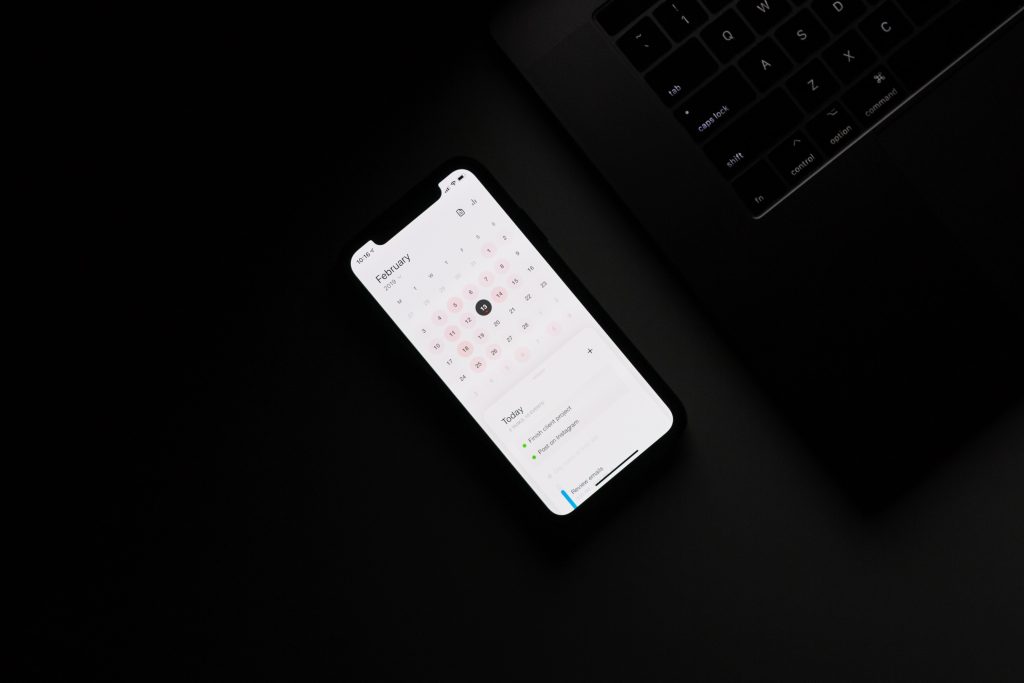Do you have the impression you’re busy from the moment you wake up right until the moment you crawl into bed? If so, you probably don’t have a schedule to stick to. You do things as they come your way, and – let’s face it – you probably overwork yourself.
Well, it doesn’t have to be this dire. Whatever the source of your busyness is – studies, work, or both – scheduling can help you set some limits for yourself. With the right tool, scheduling can be effortless – and it can help you become your most productive self possible, too.
But how exactly can it maximize your productivity, you might be wondering? Let’s break down six key answers to this question.
Too busy to work towards maximizing your day-to-day engagement? Don’t worry: while you’re at it, the college essay writing service Essaypro is here for you to reduce your academic workload in the meantime. It would help if you also ran your essay on Grammarly Review to ensure no potential mistakes were left.
 Source: https://unsplash.com/photos/S7sZReI6hJI
Source: https://unsplash.com/photos/S7sZReI6hJI
It Brings Order into Everyone’s Lives
Let’s imagine you have 10 calls to make, and you know some of them can be lengthy. If you don’t use a scheduling app, everyone is likely to end up dissatisfied:
- You’ll be in a hurry, which will bring down the quality of every conversation and make you too stressed to be fully engaged;
- People may be waiting for your call for hours, and it might come at the wrong moment. Who likes long waiting times and this kind of uncertainty?
Scheduling appointments for every call will help you avoid all of that:
- You’ll have a clear idea of how long every call should last and when you’ll be done with all of them;
- Your interlocutors can choose the time for a call that suits them the most – and they can plan their day accordingly, too.
This rings true for any sort of task, not just calls or videoconferences. If all you have to guide yourself is a lengthy to-do list, you’ll be stressing yourself out – as well as everyone involved – with the uncertainty and hurrying. Scheduling, on the other hand, introduces a sense of control and predictability.
It Narrows Down Your Focus to One Task
Be honest with yourself here: How focused are you on the task at hand, usually? Are you “in the zone”? Or do you find yourself thinking about other things you’ll have to take care of throughout the day?
If it’s the latter, it means that your brain is multitasking, whether you want it to or not. And that’s not great: any psychologist will tell you that multitasking brings down your productivity and engagement. A 15-second distraction can lead to 10 minutes of suboptimal productivity, which means it’ll take you longer to get things done.
Scheduling not just meetings and calls but also study and work sessions sends a clear signal to your brain. “Now, it’s time to work on this or that task – until, let’s say, 4 pm. Everything else can wait until then.”
Keeping a schedule for yourself can also help you combat procrastination. When you have a clear deadline in mind, you’ll be less inclined to open your favorite architecture blog or social media feed. Just remember to schedule breaks and some me-time, too!
It Sets Your Priorities Straight
Some tasks are urgent; others can wait – and it’s in your best interest to be able to tell the difference between the two. Since your time is a finite resource by definition, you have to use it as efficiently as possible. How do you do that? By setting your priorities straight.
If you stick to a to-do list, it can go on and on and on. You can add a dozen tasks to it thinking you can ace all of them in one day – without having thought about their time frame. At the end of the day, you’ll probably end up scolding yourself for not finishing everything you’ve set out to do that day. And throughout the day, you may feel overwhelmed and stressed out by the list itself.
Scheduling helps you look at your planning efforts from a different standpoint. When you add something to the calendar, you can’t avoid thinking about how long this or that task will take. That helps you realize how much you can realistically achieve within a day without working yourself into an early grave.
It Frees You from Keeping Things in Mind
Everything above applies no matter what you use for scheduling: a notebook or an app. But this particular benefit is reserved solely for scheduling apps.
If you write things down in your notebook, you still have to remember to open it and look at what you’ve written. But an app can remind you about a scheduled meeting with a notification sent directly to your phone, email inbox, or laptop. And it’ll do this automatically!
This means you can free up some storage space in your mind and allocate it to the task at hand – without worrying you might forget something. Your app will take care of remembering certain things so that you don’t have to.
It Keeps Everyone on the Same Page
Another great thing about using an app for scheduling is that you can share your schedule with anyone who might need it. You can do it with just a couple of clicks.
How does it impact your engagement? Well, just think about how often people text or call you just to ask whether you’re available on a particular day. Those texts or calls aren’t always well-timed, right? They serve as yet another distraction.
Besides, it’s not just you who will get reminders about meetings and such. It’s everyone involved, too! So, you’ll be able to avoid the “Sorry, I forgot” conversations, and everyone can be as prepared as possible.
It Shows You Where Your Time Goes
If you feel exhausted by the end of the day without having a clue what you’ve achieved throughout it, you need a schedule. It’ll help you see what you’ve managed to do during the day.
That’s important not just for feeling fulfilled at the end of a long day. When you review your past schedule – and compare it to how you actually spent that time, – you can optimize both your schedule and your time management.
For example, let’s say you run a blog about making pies. You’ve noticed that you spend an hour every time you have to publish an already-written blog post. You’ll wonder: is there a better way to organize the content flow on the blog? Once you do a bit of research, you’ll find some automation tools and cut the time needed in half, at least.
 Source: https://unsplash.com/photos/f2xfTOv0p9Y
Source: https://unsplash.com/photos/f2xfTOv0p9Y
In Conclusion: Which Scheduling App Should You Use?
So, are you convinced that a scheduling app will make your life better? If so, great! Now, you must be already googling “best scheduling apps” – and getting overwhelmed with the number of options available.
The best piece of advice here is “try before you make your pick”. The reality is, different people have different needs, and there’s no one single “best” app that you’re guaranteed to love from the get-go.
That said, if you don’t know which apps you can start with, these five are worth trying:
- Calendar;
- Square;
- Calendly;
- SimplyBook Me;
- Google Calendar.










